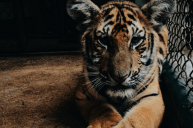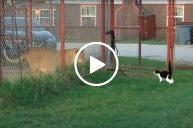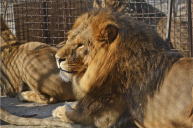In a bit of sad news to report, a lion has mauled and killed a 14-year-old girl in front of her terrified friend. Reportedly, the big cat entered her residential compound and mauled her to death. The incident happened in Kenya.
Authorities have confirmed her tragic passing but haven't revealed the name of the 14-year-old at this time. Apparently, she was at her home on the outskirts of Nairobi when the attack occurred. The lion entered the residence and snatched the 14-year-old away before brutally mauling her to death. Despite her friend calling the authorities, there was nothing that they could do.
"KWS rangers and response teams were swiftly mobilized and traced bloodstains leading to the Mbagathi River, where the girl's body was recovered with injuries on the lower back," the agency said.
To make matters worse, authorities were unable to find and contain the lion. The animal is still on the loose as of time of writing. But authorities have set up traps and also deployed search teams to try to find the animal. They believe that the big cat escaped from the nearby Nairobi National Park prior to the attack.
Lion Kills Girl
According to authorities, the park set up additional security measures to stop any more cats or animals from escaping into residential areas. The park is home to a variety of animals including lions, cheetahs, and leopards.
Although it is fenced on three sides, the south side of the park is open and allows animals to come and go as they please. The park is less of an enclosure and more of a chance of allowing public to experience animals in a safe way. But in this case, the lion didn't return to the wild. Instead, it stalked and killed a young girl.
It comes after an elephant killed a 54-year-old man in Kenya. Critics condemn the country's organization. Paula Kahumbu, head of the WildlifeDirect conservation group, urged KWS to improve "risk assessments and ensure accurate, real-time communication of wildlife movement and behavior, especially in known high-risk areas such as Savannah Ranch."
She believes all residential areas near the reserve should be "equipped with anti-predator deterrent systems — including lights, alarms, secure fencing and anti-predator sprays. Prevention is our first and best line of defense."




